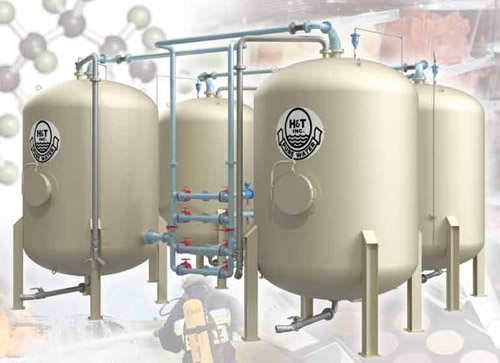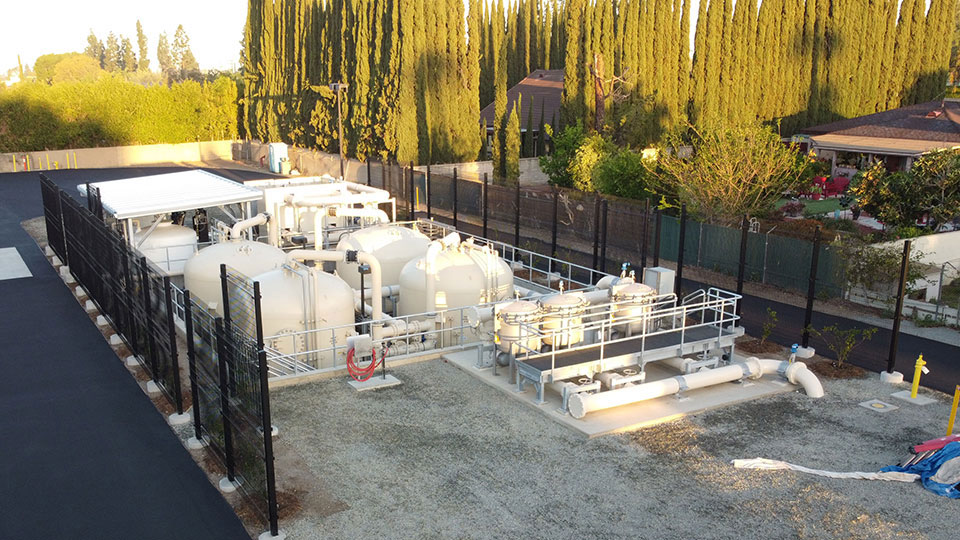Why Advanced PFAS Treatment Is Crucial for Eliminating Harmful Chemical Exposure
Why Advanced PFAS Treatment Is Crucial for Eliminating Harmful Chemical Exposure
Blog Article
How PFAS Therapy Guarantees Clean and Sustainable Water
The presence of PFAS, generally called "for life chemicals," positions substantial difficulties to water top quality and public health and wellness. Advanced therapy innovations, including turned on carbon adsorption and membrane purification, have become efficient services to mitigate these pollutants. By using these methods, neighborhoods can not just accomplish cleaner water yet also foster sustainable techniques that protect ecological communities. The implications of these treatments prolong past prompt health benefits; they increase essential questions about long-term water administration methods that have to be resolved to ensure a resilient future. What does this mean for our method to water sustainability?

Comprehending PFAS Contamination
PFAS, or per- and polyfluoroalkyl substances, have arised as a significant environmental issue because of their prevalent frequency and persistence in the atmosphere. These artificial chemicals have actually been made use of in various industrial applications and consumer products, including non-stick cooking equipment, water resistant apparel, and food packaging, because of their special homes such as water and oil resistance.
The contamination of soil and water sources by PFAS occurs primarily through commercial discharges, firefighting foam usage, and seeping from garbage dumps. pfas management. As soon as released, these substances are resistant to deterioration, bring about their buildup in the setting. This perseverance elevates critical concerns, as PFAS can take a trip lengthy ranges with groundwater and surface water systems, impacting drinking water products and ecological communities

Health Dangers of PFAS
The perseverance of PFAS in the setting raises significant health problems for people exposed to these substances. Referred to as "for life chemicals," PFAS do not damage down easily and can accumulate in human bodies with time. Study has actually linked PFAS direct exposure to different negative health and wellness impacts, including immune system disorder, liver damages, and enhanced risk of particular cancers cells - pfas management. Significantly, studies have actually revealed raised cholesterol levels and potential impacts on reproductive and developing health and wellness, particularly in expectant people and infants.
The ubiquity of PFAS in customer products, such as non-stick cookware, water-repellent textiles, and food packaging, additional enhances the threat of exposure. Consuming alcohol water contaminated with PFAS is a significant worry, as these chemicals can leach right into groundwater sources. Vulnerable populaces, consisting of children and those living near industrial websites, may face heightened threats because of their creating systems and potential for higher direct exposure degrees.
As awareness of these wellness risks remains to expand, governing agencies are starting to develop guidelines for PFAS levels in drinking water. Public wellness initiatives are important to mitigate exposure and secure areas from the long-term impacts of these harmful materials.

Ingenious Treatment Technologies
Exactly how can we effectively take on the challenges postured by PFAS contamination in water sources? Cutting-edge treatment modern technologies are emerging as critical services in the quest for clean water. These approaches concentrate on the removal or damage of per- and reference polyfluoroalkyl materials (PFAS), which are well-known for their perseverance in the environment.
One appealing approach is adsorption utilizing innovative materials, such as triggered carbon and ion exchange materials. These materials have revealed effectiveness in capturing PFAS molecules from water. An additional noteworthy innovation is membrane layer filtration, which uses nanofiltration and turn around osmosis to different contaminants at the molecular degree, hence providing a barrier versus PFAS.
In addition, progressed oxidation processes (AOPs) utilize solid oxidants to damage down PFAS compounds into harmless results. This method is especially reliable for dealing with highly contaminated water resources. Bioremediation techniques, utilizing specific microbes, are also being checked out to weaken PFAS.
As study continues, hybrid systems that integrate several modern technologies might offer improved performance, attending to the intricacies of PFAS contamination. The growth and execution of these ingenious treatment modern technologies are essential actions toward making sure the safety and security and sustainability of our water sources.
Advantages of Efficient PFAS Treatment
Successfully treating PFAS contamination in water resources substantially improves public health and ecological security. PFAS, typically referred to as "for life chemicals," are immune to deterioration and can accumulate in the body, resulting in serious health threats such as cancer, liver damage, and immune system disorder. By carrying out effective therapy techniques, communities can minimize exposure to these unsafe compounds, ultimately boosting the health and wellness end results of their populations.
Moreover, effective PFAS treatment adds to the conservation of regional ecosystems. Infected water can adversely influence aquatic life and interfere with the delicate balance of neighborhood habitats. By making certain clean water, therapy procedures safeguard biodiversity and keep eco-friendly integrity.
Furthermore, reliable PFAS remediation can promote public self-confidence in water quality. When neighborhoods are ensured that their drinking water is cost-free from damaging impurities, it promotes a sense of safety and security and well-being. This depend on is crucial for community interaction and assistance for recurring water management efforts.
Future of Water Sustainability
Amidst expanding problems about water high quality and shortage, the future click here now of water sustainability rests on cutting-edge approaches and collective initiatives. As areas face the looming risks of pollutants like PFAS, the advancement of innovative therapy modern technologies is essential. These technologies not only focus on the removal of damaging compounds however also promote the reuse and recycling of water, thus minimizing general need.
Additionally, reliable water administration plays a crucial duty in ensuring sustainable practices. Policymakers must incorporate clinical research study with regulative frameworks to establish clear guidelines for water use and therapy. Stakeholder involvement, consisting of regional neighborhoods and industries, fosters a feeling of common duty and motivates sustainable practices throughout numerous markets.
Investment in facilities is also crucial; upgrading aging systems to include contemporary filtering and purification methods can significantly boost water high quality. Additionally, embracing green modern technologies, such as all-natural filtering systems, find more information can supply environmentally friendly remedies.
Ultimately, the future of water sustainability depends on a holistic method that combines modern technology, plan, and community participation. By prioritizing these aspects, we can safeguard our water sources for generations to come, making sure clean and sustainable water for all.
Verdict
In verdict, the effective treatment of PFAS is vital for making certain tidy and lasting water. Ultimately, robust PFAS treatment techniques contribute to long-term resilience in water administration, promoting public depend on in water quality and promoting sustainable practices.
Report this page